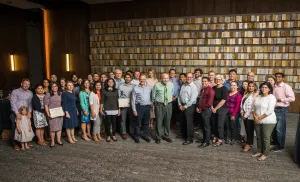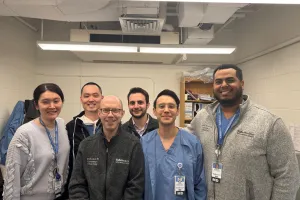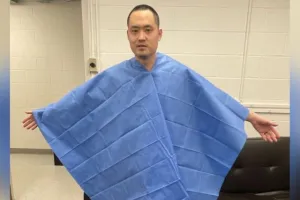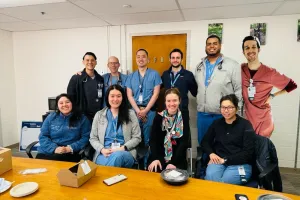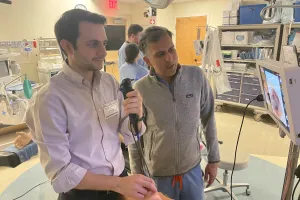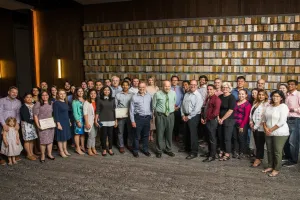Fellowship training in pulmonary + critical care medicine in Boston at Tufts Medical Center
The Pulmonary and Critical Care Medicine Fellowship at Tufts Medical Center offers comprehensive training that prepares physicians for board certification and lasting success in academic or clinical careers. Fellows gain hands-on clinical expertise and meaningful research experience in a collaborative, high-acuity environment.
What makes our fellowship different:
- Mechanical circulatory support training
- Pulmonary hypertension training
- Advanced degrees via the Tufts Clinical and Translational Science Institute
- Collaborative clinical environment
Fellows gain hands-on experience in Tufts Medical Center’s high-acuity intensive care units, including 20 medical ICU beds, caring for a diverse and complex patient population alongside expert faculty.
This three-year fellowship provides comprehensive training that leads to dual board eligibility in pulmonary disease and critical care medicine. Fellows receive individualized mentorship and have access to more than 150 full-time faculty members across the Department of Medicine.
We encourage and support fellows to pursue meaningful clinical or basic science research in collaboration with Tufts University and the Clinical and Translational Science Institute.
